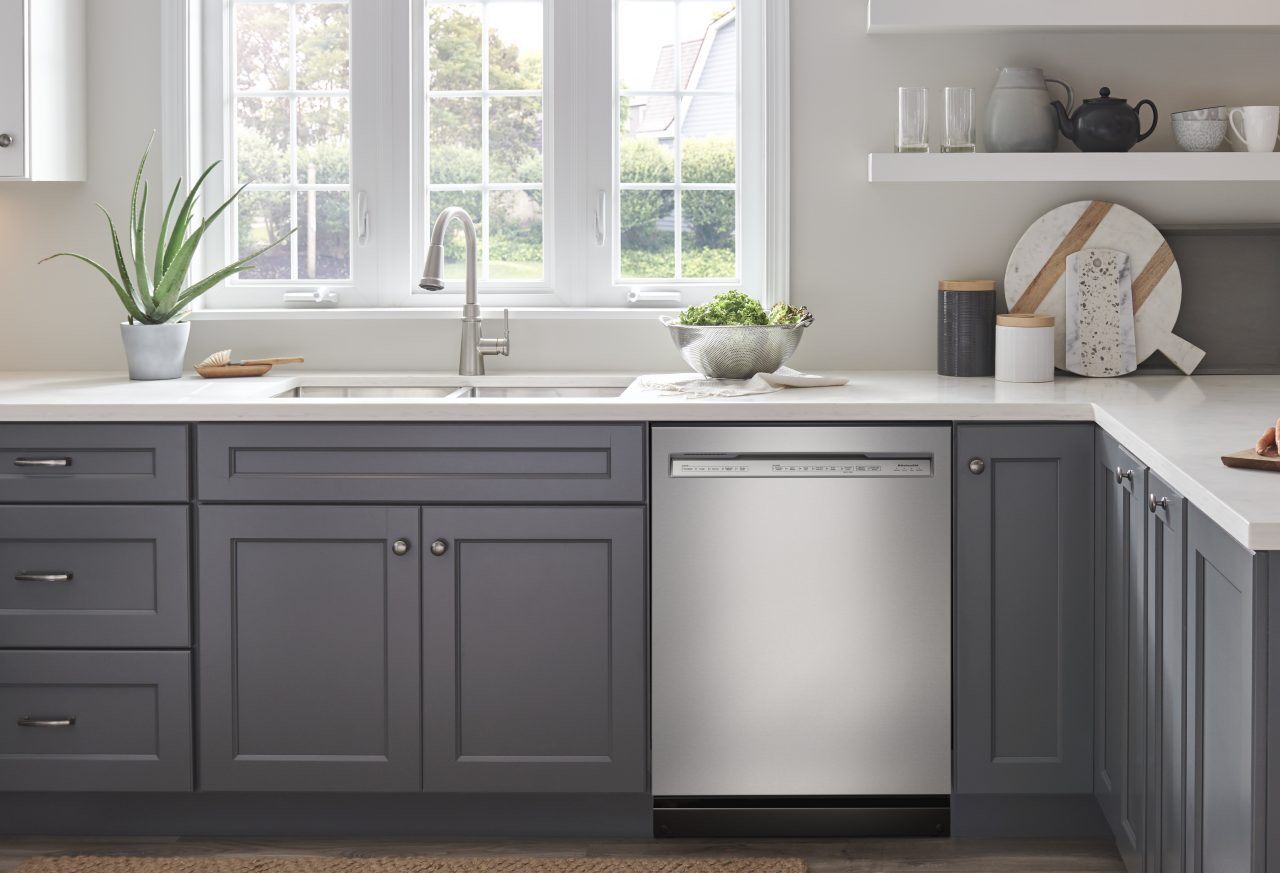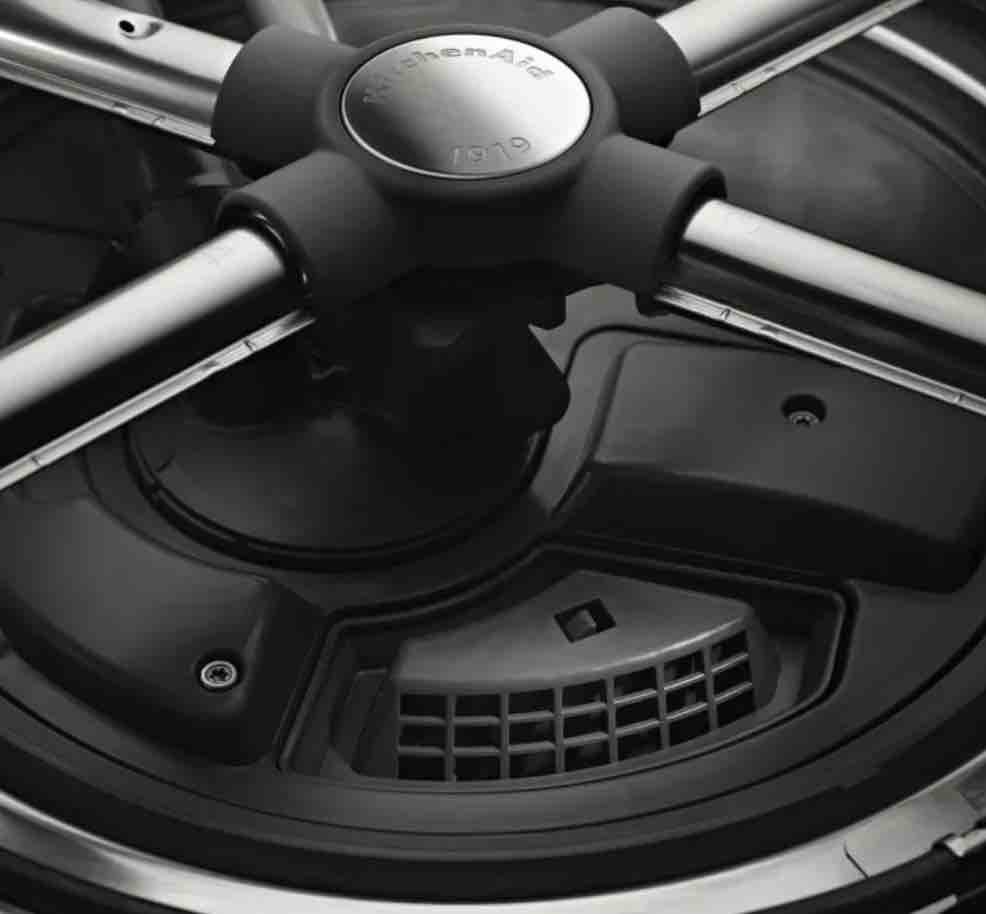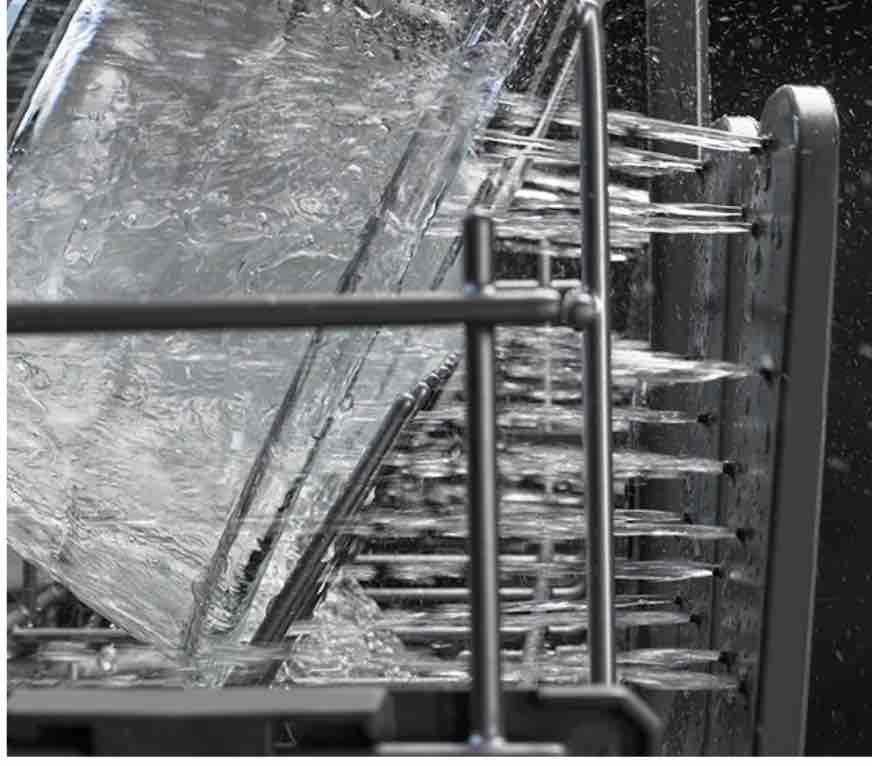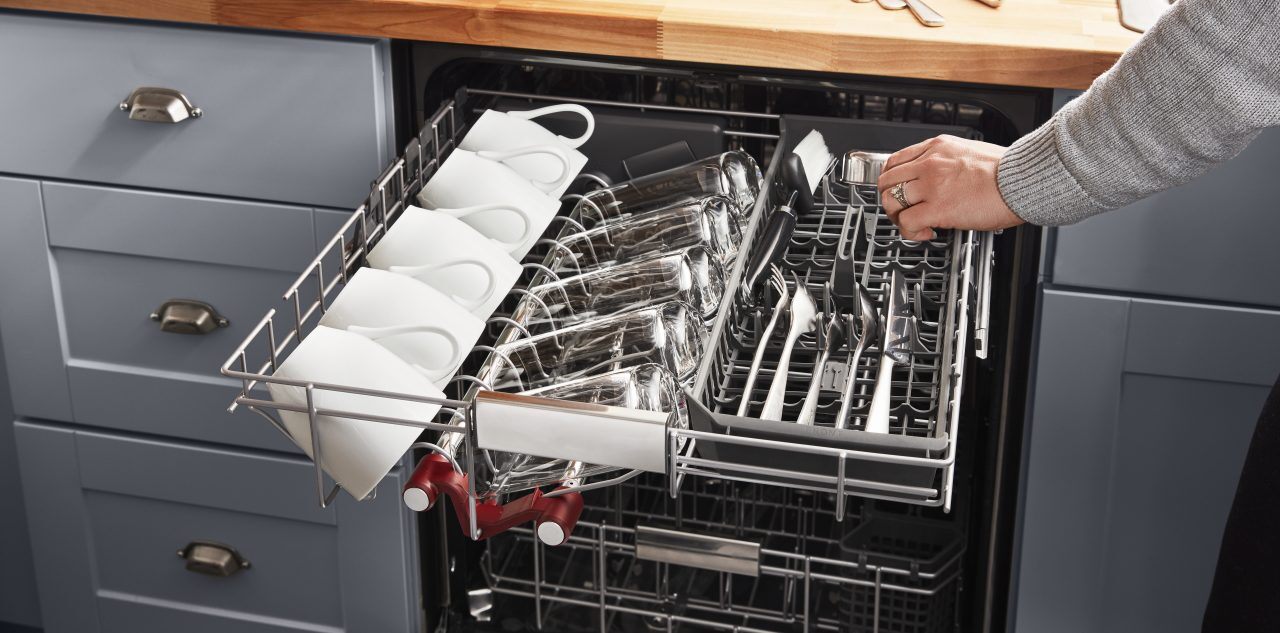
Out of all of the usual kitchen chores, washing plates and scrubbing pots and pans has never been one of my favourite ways to spend time. With four kids in the house, I have to tackle dishes at least two or three times a day. I’ve always been thankful I had a dishwasher to take care of the worst of the dirt and grime, but I’ve found even the best dishwashers can struggle with stuck-on food or leave a film on your glasses.
How to fix a dishwasher that won’t rinse dishes well
It surprised me, especially after I upgraded to a new dishwasher, that I still had an issue with spotty and grimy dishes. I wasn’t going to hand wash my dishes every time I put them n the dishwasher, so I did a little digging and found out that there are a few tricks you can use to fix a dishwasher that won’t rinse your dishes well.

Dishwasher tip one: turn on the hot water
Your dishwasher cleans your dishes with hot water. To save the appliance time heating the water, turn on your hot water tap and let it run before you start your dishwasher. You’ll need to let it run until you feel the tap is warm, and in doing so you’ll make your dishwasher more efficient before you hit the start button.
Tip two: clean your filters
Inside your dishwasher, usually on the bottom of the appliance, is a mesh screen and/or a filter. Food can build up and clog up your system, preventing your dishwasher from cleaning your dishes properly.
Tip three: presoak your dishes
A good way to test and see if your dishwasher will be able to easily remove food from your dinnerware is to try the scratch test. If you can’t scratch a piece of stuck-on food from your bowls or plates without effort, your dishwasher probably won’t be able to lift it off either.
You don’t have to do this every time you wash, but a sudsy sink of hot water can be your best friend if you want really clean dishes. If you have bowls and cutlery that have stuck-on food like pasta or cheese, give them a half-hour presoak and your dishwasher will be able to rinse that debris away a lot easier.
Tip four: change your detergent

Not all dishwasher detergent is created equal, and some types can even clog up your water lines or filters. If you’re having trouble rinsing your dishes clean, try to switch up your dishwasher detergent for a new brand. If you use powdered dishwasher detergent, try pods. Some types have a rinse agent built-in to give your dishwasher an added boost.
Also, just a tip that my husband had to learn the hard way, it’s never a good idea to substitute dish soap for dishwasher detergent. You’ll end up with a kitchen full of bubbles instead of clean dishes. Your kids will probably really enjoy it, but you’ll have to rinse it out a few times before you can clean your dishes again.
Tip five: dial up your hot water heater
If you find your dishwasher isn’t lifting food debris off your dinnerware, pots, and pans, the problem might not be with your dishwasher; it might be with your hot water heater. Try turning up the temperature a few notches and see if that helps your appliance clean.
Tip six: dish placement is everything

After I upgraded my dishwasher, I had a problem with my bowls never coming clean. I tried pre-soaking and it still didn’t work. I couldn’t figure it out until I took a look at the manual and saw how to properly stack the dishes.
It turns out that I was placing the bowls face down on the upper rack, just like I always did. The problem was that my new appliance spray jets couldn’t effectively spray hot water at the dishes in that position. They had to face up and sit on their sides. When I properly placed the dishes, they always came clean.
Tip seven: check your spray arms
If the first few tips haven’t helped your appliance properly rinse your dishes, you might want to take a look at your spray arms. Your dishwasher’s manual will tell you how to remove them, and once you do you can check for small clogs that could be affecting how well they can rinse. If you see a clog and you can’t remove it, try soaking the spray arm in vinegar or use a de-rusting product like CLR.
Tip eight: run your dishwasher empty

Your dishwasher has one job to do: clean your dishes. In order to best clean your dishes, the interior of the dishwasher has to be clean as well. If you find your dishes aren’t getting as clean as they normally would, try running the dishwasher empty. It will rinse out the interior and could help clean out any built-up food or broken bits of debris that are inside your filters.
One interesting tip I read about cleaning the inside of your dishwasher: add a scoop of Tang or another citrus-powder mix. It sounds strange, but the citric acid in the mix can remove the buildup of soap and any other debris that’s stuck in your dishwasher.
Is an appliance upgrade in your future?
We all want to have sparkling clean dishes, and it’s easy to assume you can just pile dishes in the dishwasher and it will remove every bit and piece. The reality is that even the highest-end appliance can struggle when you pack it with food-laden pots, pans, and glasses. If you find your dishes are less than sparkly, give your dishwasher a helping hand by trying these tips.
If you’ve tried everything and you are still struggling with dirty dishes, spotty glasses, and half-clean pots and pans, it may be time for an upgrade. If an upgrade is in your future, take a look at all of the amazing dishwashers available on Best Buy right now.




Tip number 1 is not valid.
In Australia, dishwashers are only connected to cold tap. Unlike washing machines for clothes which are connected to both cold and hot taps.
It’s the machine that heats up the cold water.
Therefore, tip number 5 is also invalid.
Tip number 6 is the solution to the problem as dish placement is truly everything.
Make sure there are no overlapping of dishes.
Spray water should flow between dishes. Put more soiled dishes in the bottom rack too as the spray pressure is stronger.
I agree with tip number 3 – presoaking dishes that have stuck on foods for half an hour.
Couldn’t agree more tip 4. My advice is don’t buy Miele dishwasher soap until you try it. We bought a year supply when it was on sale. Prior to this we used Cascade and had no problem. With the Miele dishwasher soap, sometimes we had to hand wash AFTER second run to scrub rice off bowls.
Miele makes great dishwasher but not detergent.
Those are all excellent points Shelly. With regards to the dishwasher filter, even if you clean your dishes before they go into the Dishwasher, over the course of time, soap scum build-up will clog the filter mesh, so a cleaning of this filter once a month is good maintenance.
Also wiping down the rubber seals by the door periodically, will help prevent mildew.
love the tips, some i already knew but some i never thought of, like running the hot water first! thanks for the tips
Comments are closed.